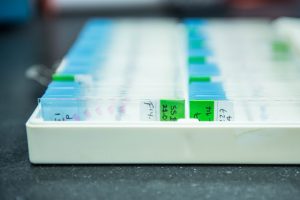Spirochetes are a unique group of bacteria, instantly recognizable by their spiral shape and unusual way of moving with internal flagella. Pathogenic members of this group cause several important human diseases, including leptospirosis (Leptospira), syphilis (Treponema pallidum), Lyme disease (Borrelia burgdorferi), and relapsing fever (Borrelia hermsii, Borrelia recurrentis). Unlike many well-studied bacteria, spirochetes do not follow the usual biological “rules” and can be very difficult to work with in the lab. These challenges are exactly what drive us—we are well prepared to tackle them, and we thrive on exploring the unusual biology that makes spirochetes so fascinating. To do this, we use a wide range of cutting-edge tools, including capture RNA-seq, experimental infection models, and AI-driven structural prediction (such as AlphaFold3), to uncover how these remarkable pathogens are built, how they regulate their genes, and how they interact with their hosts.
The Spirochete Research Laboratories (SRL) was founded in 1999 by Dr. Justin Radolf at UConn Health and has grown into a leading center for spirochete biology worldwide. Dr. Melissa Caimano has been part of the SRL since the very beginning, later joined by Dr. Kelly Hawley, Dr. André Grassmann, and many dedicated trainees. Over the years, SRL alumni have gone on to successful careers in academia, medicine, and industry, reflecting our strong tradition of mentorship and training. What truly defines the SRL, however, is our collaborative spirit. Members hold appointments across several UConn Health departments—including Medicine, Pediatrics, Molecular Biology and Biophysics, Immunology, and Genetics and Genome Sciences—as well as at the Connecticut Children’s Hospital Research Institute and its Scientific Center for Microbiology, Vaccinology, and Pathobiology. This multi-center network creates a dynamic environment where diverse expertise comes together to push the boundaries of spirochete research.





